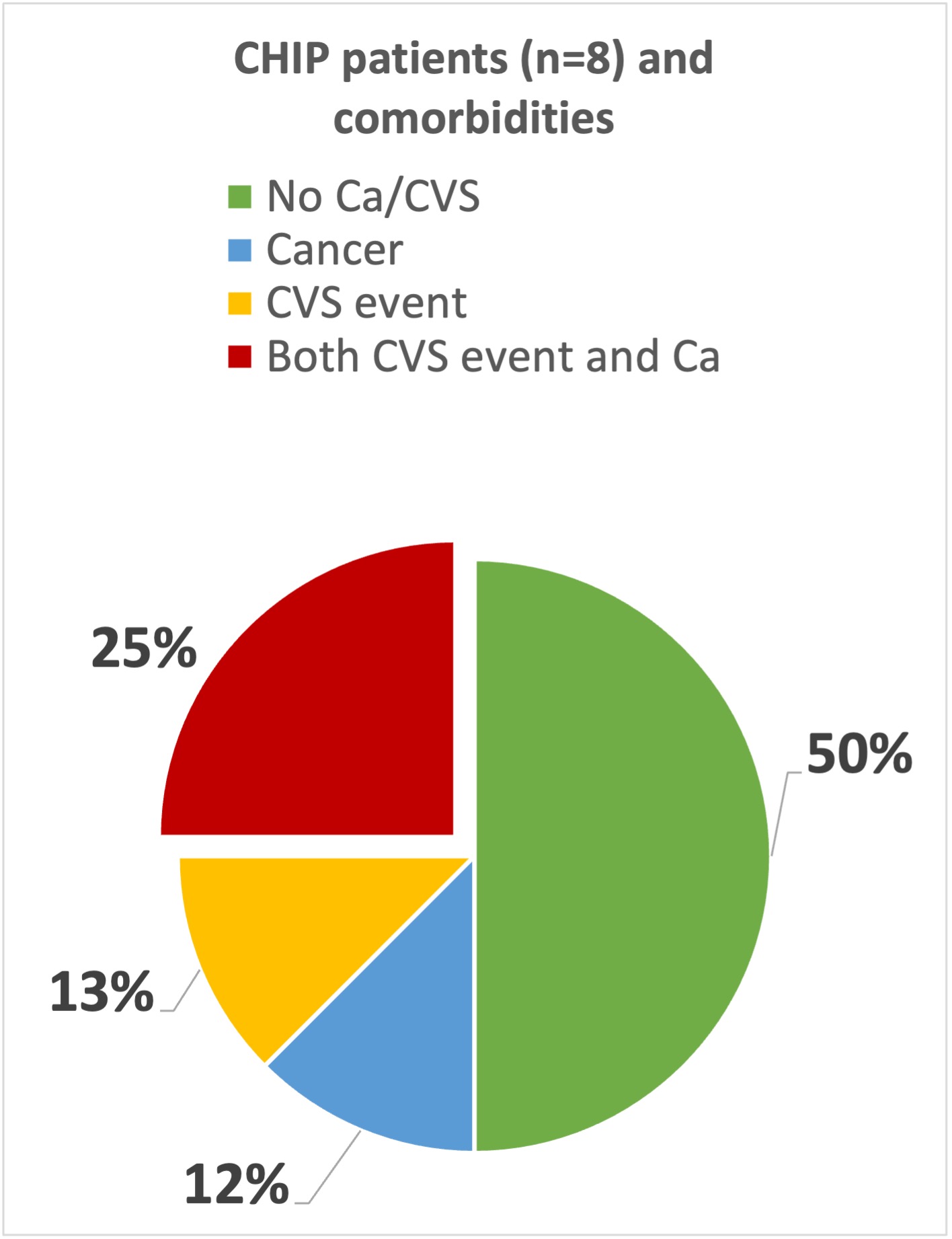Session Information
Date: Sunday, October 26, 2025
Title: (0067–0097) Rheumatoid Arthritis – Etiology and Pathogenesis Poster
Session Type: Poster Session A
Session Time: 10:30AM-12:30PM
Background/Purpose: Clonal hematopoiesis (CH) of indeterminate potential (CHIP) is defined as the detection of recurrent somatic mutations, at a variant allele frequency (VAF) < ![if !msEquation] >< ![if !vml] >< ![endif] >< ![endif] >2%, in genes that are known to drive hematological malignancies (such as DNMT3A, TET2, ASXL1) in individuals without hematological abnormalities. CHIP is associated with increased risk of cardiovascular morbidity and all-cause mortality, likely by driving inflammation1. We hypothesised that the chronic inflammatory microenvironment in an autoimmune condition such as rheumatoid arthritis (RA) provides selective advantage to CH, thereby promoting an inflammatory state in a self-perpetuating feedback loop. We therefore evaluated the prevalence and pattern of CHIP in RA and its impact on disease activity (DA) and comorbidities. 1. Rossi M, Meggendorfer M, Zampini M, et al. Clinical relevance of clonal hematopoiesis in the oldest-old population. Blood. 2021;14doi:https://dx.doi.org/10.1182/blood.2021011320
Methods: DNA was extracted from the peripheral blood of 112 patients with early RA and was analysed for CH using a custom-designed myeloid gene panel. Correlation between CH and disease parameters was performed.
Results: Somatic mutations at VAF levels < ![if !msEquation] >< ![if !vml] >< ![endif] >< ![endif] >0.5% and < ![if !msEquation] >< ![if !vml] >< ![endif] >< ![endif] >2% were detected in 27.7% (31/112) and 9.8% (11/112) RA patients, respectively. RA patients >60years old (53.9%) were more likely to have CHIP (20.5% vs. 4.1%; P=0.015). This is significantly higher than the reported frequency in an unselected population of 5.6%2. The majority of the 48 identified pathogenic variants involved DNMT3A (47.9%), TET2 (16.7%) and ASXL1 (12.5%). 9/31 (29%) harboured ≥2 variants. Though there was a higher prevalence of CHIP in seronegative patients (11.1%) compared to seropositive (8.2%); this was not statistically significant (p=0.75). Patients with high baseline DA (DAS28-ESR >5.1) and CHIP or ≥2 distinct CH mutations were less likely to respond to therapy at 6-months (23.5% vs. 7.8%; P=0.1; 23.5% vs. 3.9%; P=0.031, respectively). Strikingly, patients with CHIP had higher rates of incident malignancy (38% vs. 8%; P=0.04), and those with any CH were more likely to have cardiovascular event after RA diagnosis (57% vs. 25%; P=0.05).2. Jaiswal S, Fontanillas P, Flannick J, et al. Age-related clonal hematopoiesis associated with adverse outcomes. N Engl J Med. Dec 25 2014;371(26):2488-98. doi:10.1056/NEJMoa1408617
Conclusion: Patients with RA have increased prevalence of CH, with associated implications for DA, response to therapy and risk of comorbidity. Further prospective studies are required to characterise this subset of RA patients.
 CHIP patients and comorbidities
CHIP patients and comorbidities
.jpg) Clonal Haematopoiesis and Chronic Inflammation
Clonal Haematopoiesis and Chronic Inflammation
.jpg) RA Patients with High Disease Activity and Treatment Response at 6 months
RA Patients with High Disease Activity and Treatment Response at 6 months
To cite this abstract in AMA style:
Chin A, branford s, Small A, Smith m, Kutyna m, King R, Proudman S, Hiwase D, Wechalekar M. Clonal Hematopoiesis of Indeterminate Potential (CHIP) in Rheumatoid Arthritis: associations with treatment response and comorbidities [abstract]. Arthritis Rheumatol. 2025; 77 (suppl 9). https://acrabstracts.org/abstract/clonal-hematopoiesis-of-indeterminate-potential-chip-in-rheumatoid-arthritis-associations-with-treatment-response-and-comorbidities/. Accessed .« Back to ACR Convergence 2025
ACR Meeting Abstracts - https://acrabstracts.org/abstract/clonal-hematopoiesis-of-indeterminate-potential-chip-in-rheumatoid-arthritis-associations-with-treatment-response-and-comorbidities/
